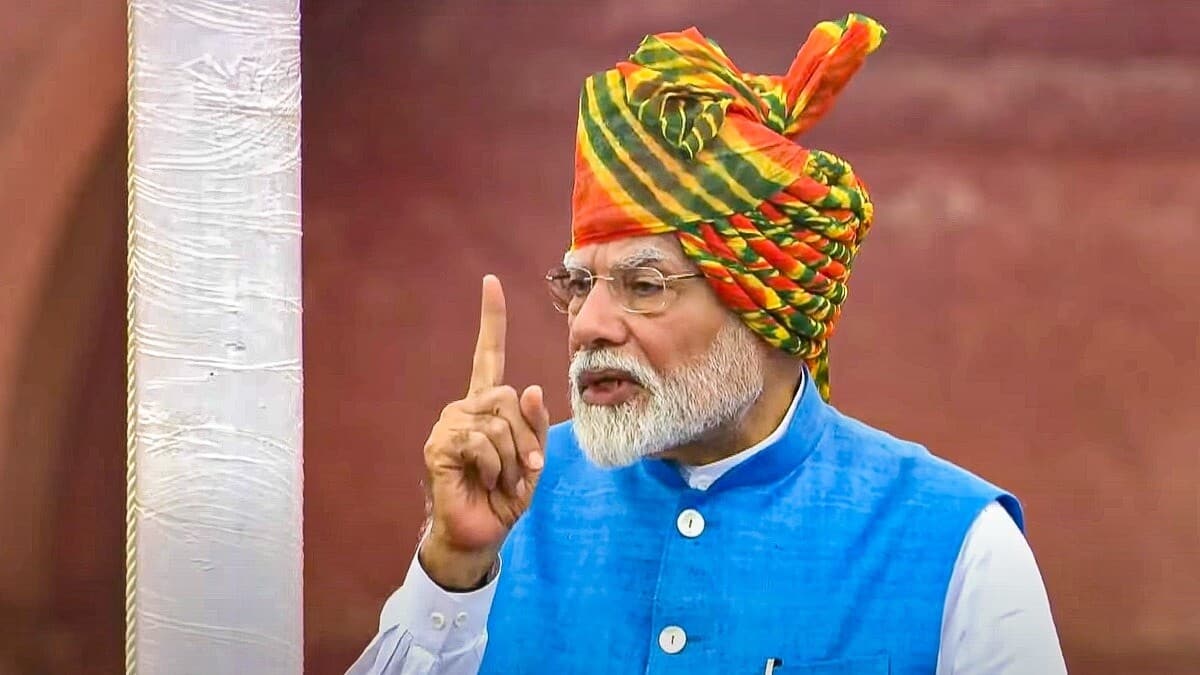
Existing civil code divisive, we need secular civil code: Modi
What's the story
Prime Minister Narendra Modi, in his Independence Day speech, strongly advocated for the implementation of a Uniform Civil Code (UCC) in India. "The Supreme Court has repeatedly held discussions on uniform civil code, given orders, because a large section of the country feels, and rightly so, that the current civil code is a communal civil code, a discriminatory civil code," he said.
Debate
UCC need of the hour, says PM
Calling it "the need of the hour," the PM said there should be extensive debate on the issue. He stated that everyone should express their opinions, and there should be no room for laws that divide the country and create the basis for dividing individuals based on religion. "Constitution asks us to do and what the Supreme Court has asked us to do and what was the dream of the Constitution framers. So it is our duty to fulfill it."
Code criticism
PM Modi labels current civil code as 'communal'
He also highlighted that people have endured this communal civil code for 75 years now, and stressed the urgency of implementing a secular civil law to end religious prejudice. The Centre and the opposition have long locked horns over the UCC, with the latter arguing that implementing a UCC would infringe upon religious and cultural autonomy, eroding India's societal diversity.
Urgent reform
PM Modi emphasizes need for secular civil code
In the days leading up to the general elections, PM Modi and other Bharatiya Janata Party (BJP) leaders pledged to implement UCC nationally along Uttarakhand's lines. The UCC is expected to be implemented in the BJP-ruled state in the first week of October. The controversial bill was first introduced by the Pushkar Singh Dhami government in February and passed during a special session of the Uttarakhand assembly.
UCC
What is UCC
The proposed UCC aims to establish a single law applicable to all religious communities in matters such as marriage, divorce, inheritance, and adoption. It also prohibits polygamy, child marriage, Iddat, and Halala, as well as making marriage registration and live-in relationships mandatory. This code is mentioned in Article 44 of the Constitution, which states that the state shall strive to secure a Uniform Civil Code for its citizens across India.